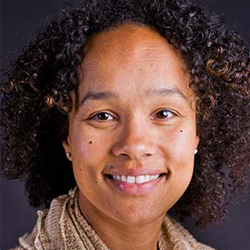A team of research experts from the COVID-19 Prevention Network (CoVPN), headquartered at Fred Hutchinson Cancer Research Center, has demonstrated that through robust community engagement, equitable inclusion in vaccine clinical trials can make a powerful impact on the health of underrepresented communities.
Recent data highlight the absence of Black, Indigenous, and people of color (BIPOC) communities in vaccine clinical trials. The new study, published in the journal PLOS ONE, discusses the need for engagement of BIPOC communities in infectious disease research as a critical component in efforts to increase vaccine confidence, acceptability, and uptake of future approved products.
“There has been discourse stating that it is challenging and there are too many barriers to engaging with BIPOC communities,” said Michele Andrasik, PhD, a senior staff scientist at Fred Hutch and lead author of the study. “We are hoping that this shows these are surmountable barriers, and it is possible to overcome them through long-term investments in relationships within the community and by building reputations of trustworthiness as researchers and institutions.”
The study analyzed demographic and enrollment data across Phase III COVID-19 vaccine efficacy trials to inform future efforts to ensure inclusive participation. Across the four U.S. government-funded COVID-19 vaccine clinical trials for which data are available, 47% of participants enrolled at CoVPN sites in the U.S. were BIPOC. White enrollment outpaced enrollment of BIPOC participants throughout the accrual period, requiring the implementation of strategies to increase diverse and inclusive enrollment. Trials opening later benefitted considerably from strengthened community engagement efforts, and greater and more diverse volunteer registry records.
Four methods for engaging with BIPOC communities included:
- Increasing community awareness and knowledge to address and correct misperceptions, misinformation, and myths.
- Partnering with social service providers, advocacy organizations, physician and medical professional associations, media, academic institutions, local/state/national government partners, and faith-based organizations.
- Leveraging the breadth of established relationships from the HIV Vaccine Trials Network’s history of successful engagement in faith communities to reach broad audiences through the CoVPN Faith Initiative. (Andrasik is also director of social and behavioral sciences and community engagement for the network.)
- Integrating in-language and in-culture marketing into an outreach strategy focused on Latino/a/Hispanic and Black/African American communities.
The results “show that equitable inclusion of BIPOC communities is possible,” Andrasik said. “We have known that it is necessary, given the longstanding social, structural, and economic inequities that BIPOC communities face. We have to invest in connecting with the community and ensuring meaningful community involvement in every step of the research.”
Edited by Gary Cramer



